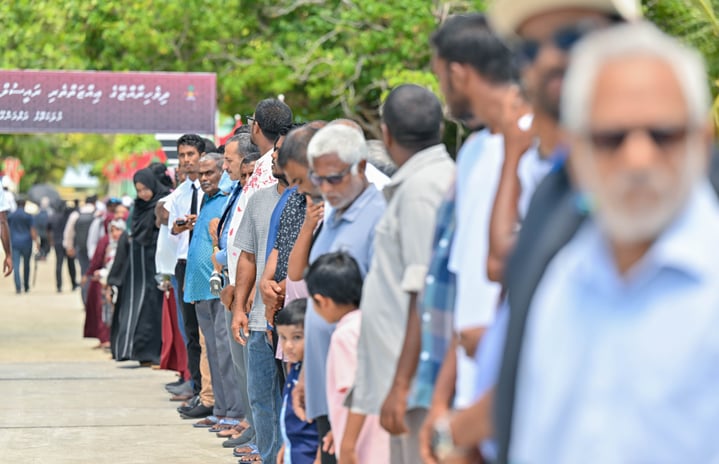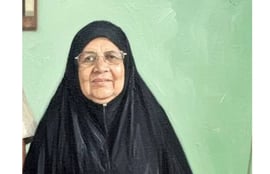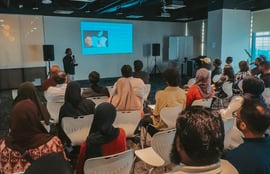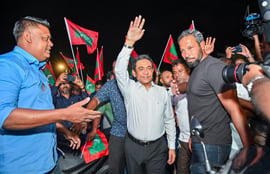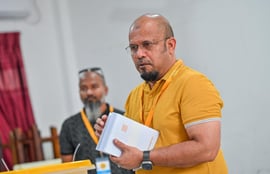President Dr Mohamed Muizzu began his visit to the islands of Meemu Atoll yesterday, with his first stop being M. Raiymandhoo. During the visit, a key issue raised by the residents was the proposed relocation of people from Raiymandhoo to a larger, more developed island.
The island, home to around 300 people, is currently divided over the prospect of relocation, making it the central topic of the President’s meeting with the community.
There is a noticeable divide among the population; some fiercely oppose leaving Raiymandhoo, while others welcome the concept of migrating to a more prosperous island.
Prior to the meeting, President Muizzu stated that residents of sparsely populated and under-resourced islands had requested relocation. In such cases, the government would first consider the views of the people, and relocation would only proceed if the majority supported it.
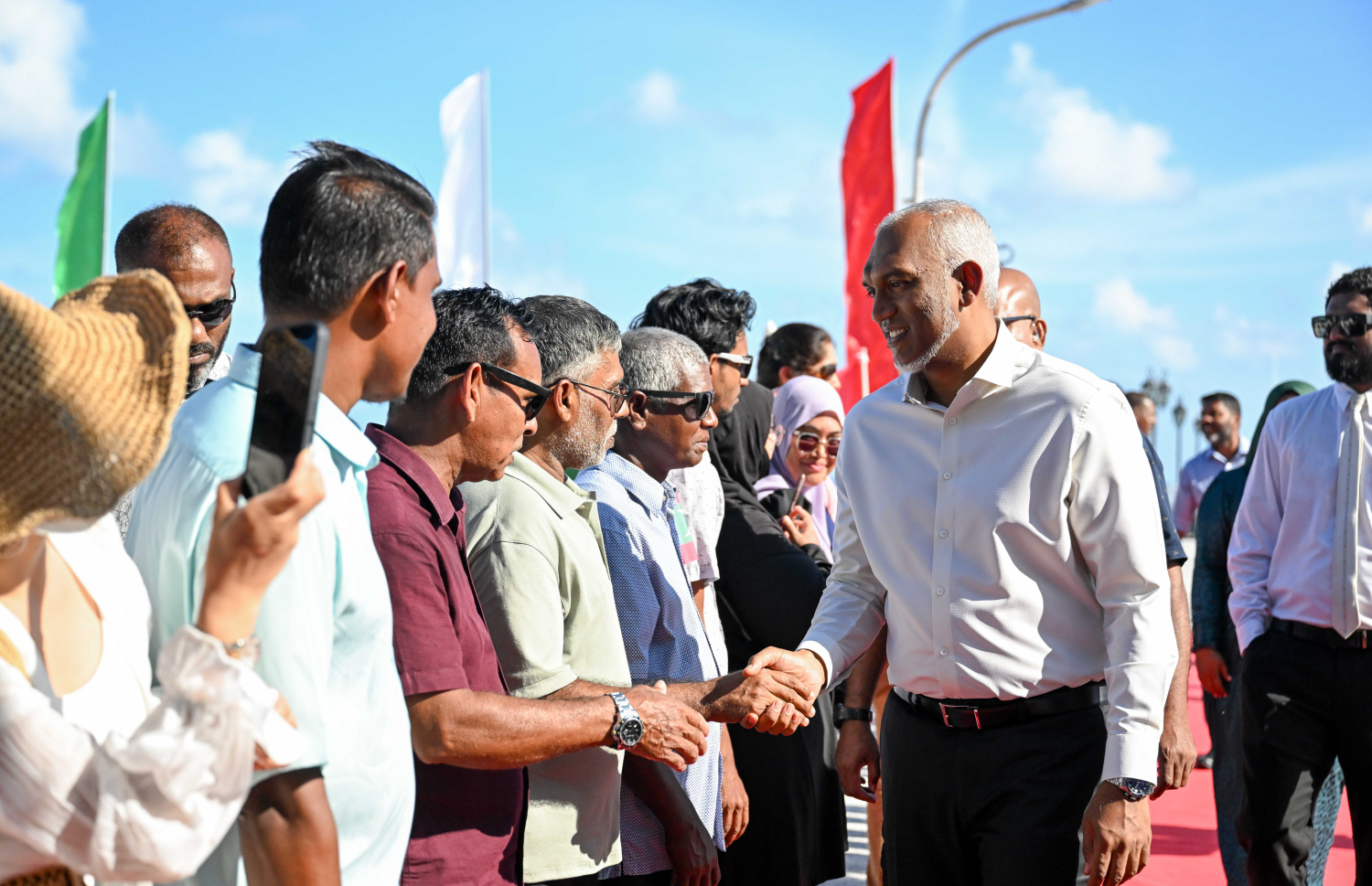
“What I certainly won’t do is move people from the island against their wishes,” the President said.
“I want to meet and discuss this with you. The government will work hard to support whatever decision you make regarding your future.”
Some residents mentioned that the island’s current population has dropped to around 70 people.
".....but now we feel forced, it’s come to the point where I worry there will be no one left to carry my coffin,”Said an elderly man from the island
During the meeting, the President invited everyone to share their views. Speaking on behalf of the island council, Council President Ismail Nahidh stated that the President had now heard the community’s concerns firsthand. He confirmed that a petition supporting relocation had been submitted to the President’s Office, following consultations with residents.
Nahidh added that while he had asked for the President’s views on small-population islands, there had not yet been an official response.
“This must be done through wide and inclusive consultation between the council and the people,” Nahidh said.
“We need clarity on how the process will unfold, where people will be relocated to, and what steps will be taken to ensure a smooth transition.”
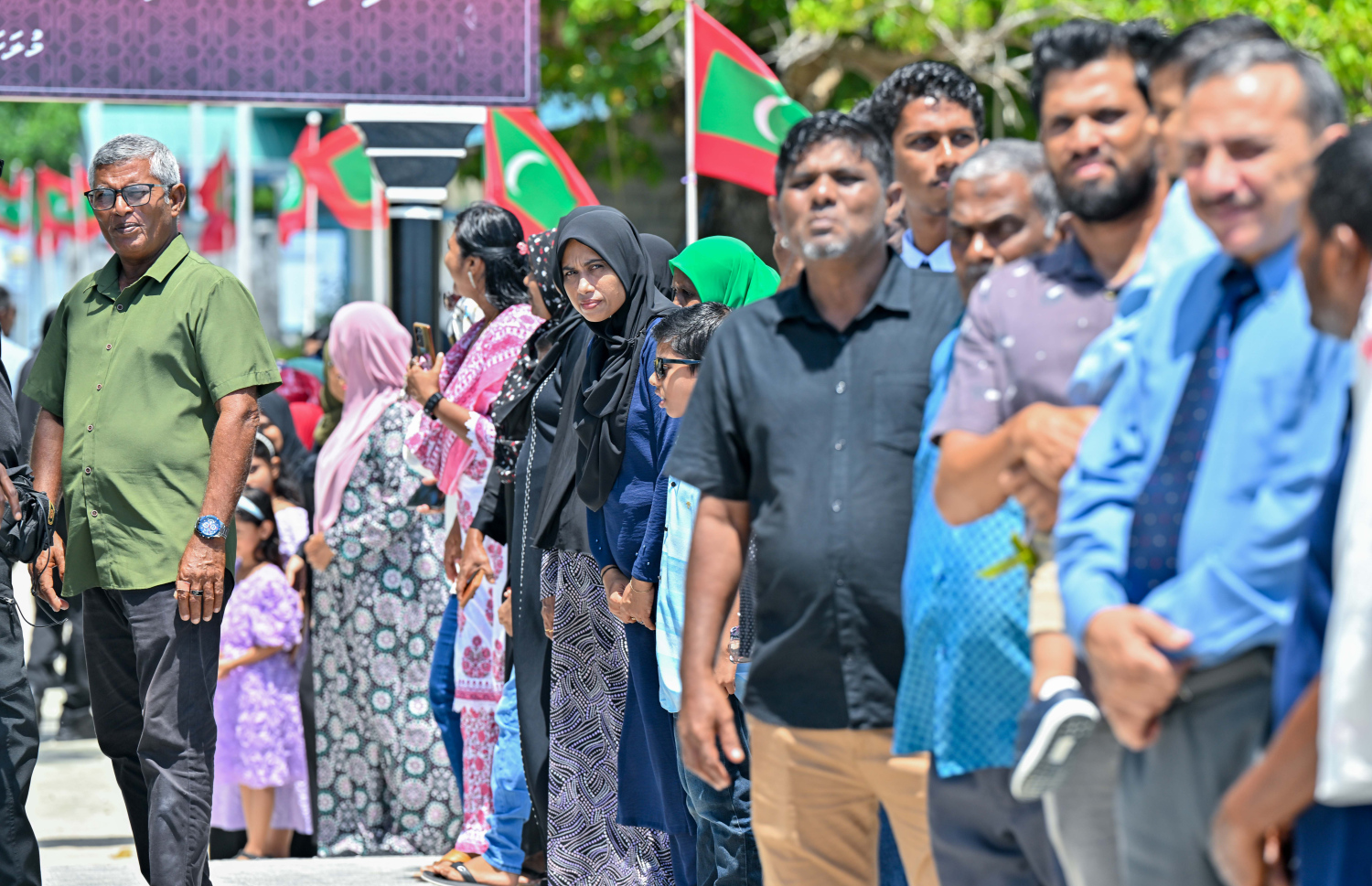
He also noted the lack of basic services on Raiymandhoo. Despite these difficulties, he acknowledged that while many residents support relocation, others are determined to stay.
Nahidh also urged the President to resume stalled development projects on the island, highlighting the serious challenge posed by the lack of a proper jetty.
Meanwhile, residents who are against relocation suggested setting up a satellite school to address the shortage of school-age children, an idea the council believes could help keep the existing school running.
With the community clearly divided, Nahidh stressed that any final decision must come only after a wide and inclusive consultation process.
“What I certainly won’t do is move people from the island against their wishes, I want to meet and discuss this with you. The government will work hard to support whatever decision you make regarding your future.”The President said
Supporters of relocation cite the severe lack of essential services as the main reason for wanting to leave.
“I am in my old age. We are disheartened. Just hearing the talks of relocation is too much for our souls. But now we feel forced, it’s come to the point where I worry there will be no one left to carry my coffin,” said one elderly resident of the island.
Some residents wish to move to an island closer to Malé City, while others advocate for improving conditions on Raiymandhoo itself.
After the meeting, tensions escalated between the two groups, those in favor of relocating and those firmly against it.
As President Muizzu was boarding his speedboat to leave the island after the meeting, he noticed unrest among residents who were dissatisfied with the council’s stance. This group, opposed to relocation, expressed anger and frustration directly to the President.
In response, President Muizzu got off of the vessel and assured them that the issue of relocation would be resolved peacefully, with full consideration of everyone’s views.
